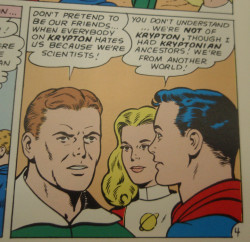Blog Archives
I was sent this story, about free-market reformer of socialism within France’s Socialist Party:
Previously an aide to French President François Hollande, he was appointed as Finance Minister with a mandate to, in a word, liberalize France’s economy in a desperate bid to boost employment and rescue Hollande’s abysmal poll ratings. Macron then embarked on a frenzied program of free market reforms, in a country that is one of the most anti-market in the developed world, and which voted in a Socialist president and parliament three years ago.
Macron has been unashamed. Instead of keeping his head down, he keeps making remarks in the press almost designed to rile up his own side. He has called for reforming civil service rules, a longstanding demand of the right and anathema to the left. According to reports, he said privately that Hollande’s plan to raise taxes on the rich would make France “like Cuba but without the sun,” and almost resigned as presidential advisor because he felt a pensions reform plan didn’t cut enough. He talks about being part of the “reality-based left” and of being a “left-wing supply-sider.”
I’m not really going to explore the French political aspect of this, but the link got me thinking about party names. Specifically, the slight oddity that a party that calls itself the Socialist Party would have a free-marketeer at its financial helm, and more than that about party names. {Note, this post contains minor spoilers for Harry Turtledove’s Southern Victory series, mostly as a jumping off point.}
In Harry Turtledove’s Southern Victory series, in the 1880’s the Republican Party having been elected only twice and twice having presidents lead them into losing wars becomes so disgraced that it is considered beyond redemption. Abe Lincoln, one of the two presidents to lose said wars, turns coat again and helps found the Socialist Party, which over time replaces the Republican Party as the second major party. Even without the southern states, the country is not ready for a the sort of Socialism that the party offers and while the Socialist Party and Republican Party split the opposition the Democrats have the presidency completely uninterrupted from 1885 to the 1920’s.
Now, as a matter of political science, Turtledove is far too comfortable with one-party rule as there is a similar dynamic in his Confederacy where one political party, the Whigs, obtain uninterrupted power from the formation of their parties (whenever that occurred) to the 1930’s. The dynamic in the Confederacy is explainable in part due to corruption as well as a minority party (Radical Liberals) whose base of support is both regional (Chihuahua, Sonora, and Cuba) and a disregarded minority. In the United States, it’s mostly due to the spoiling Republicans and the intransigence of the Socialist Party. The best I could do to justify that occurance is that a party so built on an unwavering socialist foundation wouldn’t be able to expand its support to a majority (indeed, throughout the novel they seem to mostly be speaking a foreign language, though presumably the tenets and terminology of socialism are at least somewhat more familiar in that timeline).
What occurred to me is that by calling themselves Socialists, they sort of painted themselves in a box that made it extremely difficult to win. Perhaps if they’d gone with Social Democrats! That would, at least, give them room to have more than one wing to try to cobble together a majority. While Social Democrat has a particular meaning, it is one that at least seems more subject to evolution over time. And indeed, it has evolved over time. Christian Democrat is the conservative alternative in Germany, though as a name it may make it harder to bring Turkish-Germans into the coalition.
I may not be a fan of the two political parties we have, but I will say this for them: They have good names. There is nothing in the word Democrats or Republicans that nails them down to supporting a particularly ideology. There will never be the oxymoronology of the free-marketeer Socialist. The coalitions have changed considerably over the years, but the names have never become as disjointed as with the conservative Liberal Party of Australia or Liberal Democrat Party of Japan, nor as awkward as the Labour Party’s transition to being the party of the university and the professional class that has to watch what it says about the working class? And unlike the Tories and the two major parties Canada, it gives us room to talk about the conservative wing of the GOP versus the moderate, without having to constantly specify “lower case c” and “upper case C” and so on. Ditto for their Liberals (which have been using that name for considerably longer). Though, how long will the New Democrats be new?
The rival party to the Socialists in France go by the name Republicans, though that is something of a recent development. The name of the Gaulist/center-right party has changed over time through some splinters, mergers, and rebranding. That also works and it would actually be a lot easier if each time a coalition died the next coalition came back under a different name (like Federalist to Whig to Republican) instead of the same name with a different meaning (Democrat to Democrat). But if the party names are hard-coded in there, I’m not sure we could have better names.
Bernardo Aparicio Garcia writes about live in Pablo Escobar’s Colombia.
Adam Ozimek takes issue with the idea that macroeconomics is all about the confirmation of priors.
Michael McShane looks at Tiny Schools. The questions about scalability seem valid, but I would love for us to have a regime to enable them.
Contrary to my view a decade ago, I think there may be a justification for public spending on stadia and the like (at least, so long as we allow professional leagues their extortion), but according to a new study it really isn’t so.
Noah Feldman talks about how the Soviets stole a Van Gogh.
Here’s a year-long road-trip you can take if you are insanely passionate about 70-degree weather.
The Greeks say “No Smoking sign? I don’t see no No Smoking sign.”
Fewer Americans are getting married in churches.
Oooh, and annotated map of Middle-earth!
Maybe we would have better infrastructure if it didn’t cost so much.
If you walk a mile in someone’s shoes, you will… become judgmental as hell.
Creepy-arse stuff like “spiders the sizes of puppies” are supposed to be in Australia, not the Americas!
Norwegians are all about ghost-hunting.
David Frum says that the trade-off between security and liberty is a false one. As does Reason’s Ronald Bailey, though in markedly different ways.
How prisons fleece prisoners and their families.
Looper says that a Krypton TV show is doomed to failure because:
- Prequels are inherently pointless
- We already had 10 years of a dumb Superman prequel called Smallville
- Its connections to the DC Universe are weak, at best
- Krypton is literally the least interesting part about Superman
- Spoiler Alert: Krypton explodes!
Is Krypton the least interesting thing about Superman? I tend to think that Superman himself is the least interesting thing about Superman. Metropolis is interesting, the Daily Planet is interesting, and even Clark Kent is interesting. Superman himself is pretty inherently dull. This is why Superman is best used as an ancillary character in someone else’s story. Krypton has the advantage of being relatively uncharted territory. It’s more of a blank slate, apart from comics.
I do think the lack of tie-in with the DC Universe can be potentially troublesome. Not because it needs to be, but because there is always the tendency of writers to try to create tie-ins. Arrow and The Flash are replete with examples of using existing other characters just because they can. Sometimes it is used to good effect, but other times it creates problems because when they later have an actual use for the character, they’ve already burned it. So when they need Black Canary, they have to start with someone that isn’t Dinah Laurel Lance.
This was a huge problem in Hawkworld, a comic book series that was meant to be a prequel to Hawkman. The story featured future Hawkman Katar Hol as a police officer on Thanagar. Except that they wanted to be able to do crossovers, so they fiddled with continuity to such a degree that they never really recovered from it. The existing Katar Hol on earth was changed to a Thanagarian spy. It was a real stretch and Hawkman became notorious as having the worst continuity this side of Power Girl.
But on the whole, I think it can work artistically if not commercially. If that’s the case, it’ll be a lot like Caprica, the prequel to Battlestar Galactica which which Krypton would share a great deal in common. Or maybe it will suck artistically, with Krypton’s fall being an over-the-top metaphor with what the writers think is wrong with the Earth. I worry about that a lot more than I do already knowing the ending.
What are you hiding? Kathryn Watson reports that our private medical records are not as private as we might hope.
The iTunes EULA, in graphic novel form…. {via}
“That’s what the terrorists want.”
So… they’re remaking Memento. Perhaps they’ve forgotten that the first can’t really be improved upon, and are doomed to re-do what has already been done to no effect.
Facebook is adopting a new feature to hide your ex after a breakup.
Presumed dead for years, it turned out that she just wanted to game and hang out.
How representative or reasonable we should consider the actions of student protesters aside, Millennials have a more jaundiced view of free speech compared to their elders. And not, as I had initially hoped, merely as a product of age.
The American President, the Aaron Sorkin film that sort of laid a blueprint for The West Wing, is twenty years old. I enjoyed the movie greatly. Especially the part where the president sabotaged his re-election prospect for bills that won’t pass to impress a girl.
The planet Mars is goin’ to the chapel and maybe gonna get married. (It’s okay, the moons were problematic anyway.)
The story of a man who was bilked for over $700,000 by psychics.
Jared Fogle is blaming the Subway diet for his sex crimes.
A gun ban is most popular among educated whites in DC, and least popular among blacks.
In New Orleans, a medical student took a bullet to prevent a girl from being absconded. Also, Doo Doo the clown.
Los Angeles is considering using license plate readers to send men who drive into the wrong part of town nasty letters.
There have been only a few times that I have longingly imagined a cigarette in my hand and my mouth. One of which was last Thanksgiving. It was a family gathering on Clancy’s mother’s side. As it happens, she lives a few hours inland of us, so we were able to make the trip. Dork that I am, I packed everything to be able to puff… except the eliquid. I didn’t realize it until it was way too late, though.
The prospect of several days, surrounded by people, without the ability to puff was really quite daunting. I didn’t think I would be able to do it. I pondered going to a convenience store and getting some disposables. The problem is that the stuff they sell in convenience stores is really not very good. At all. Though it’s the same basic mechanism that I did successfully use to quit, I had a hard time imagining going back.
I had an easier time imagining smoking. Just for a couple of days, you understand. Just until I got back. I’d recently passed the one year mark, though. And “just one” is a pretty bad policy to anyone who has been addicted. Yeah, some people can do that. More can’t.
It didn’t take a half-an-hour before a rather obvious thought occurred to me: Vape shops. I’d never been in a vape shop before. I got my equipment and always got my ejuice online. Desperate times called for desperate measures, however, and it turned out that there was a vape shop in town. It cost about $1.08 a milliliter, which is between 2-5x what I usually pay, but I was happy to pay it.
—-
Besides that, the only times when I’ve missed smoking have involved equipment problems with my devices. The first-generation stuff I got was very easy, albeit unsatisfying. The second generation was much more satisfying, and cheaper in the overall, but required a lot more work. There were tanks to clean, tanks to keep full, coils to replace, batteries to make sure they were charged. It was kind of a pain. It was made all the moreso by the difficulties I had with the wicks and coils, which were a real pain to install and you had to do it just right or you wouldn’t get a good vape at all. The second generation was also wildly inconsistent, which may be related to the wick problems but were also an issue that the wicks would burn out quickly and I never knew whether it was just a temporary thing or if I needed to replace the darn thing.
In any event, when I would have really bad vape days, when I was nearing the end of most of my wicks and the new wicks I installed weren’t working right, it was hard not to think of what was needed to smoke a cigarette: You buy a cigarette and you light it on fire and breathe in the smoke. That’s pretty much it.
I’m on the third generation now, which has some of the maintenance of the second generation, but is on the whole much easier. It is a lot more satisfying, so even if the coils aren’t perfect it’s better on its bad day than a second-generation is on a good day. And replacing the coil is a snap and I don’t have to do it as often and it’s harder to screw up.
I’m back to the point where I don’t even unseriously fantasize about smoking a cigarette.
All of which is a way of saying that the technology matters. And as the FDA and EU ramp up regulations, they’re doing so with a disregard for the vaping experience. I think they might think that making it a bit of a pain is a good thing. I obviously disagree. These thoughts will be further explored in a coming post on OT. But for now I will just say that we really do want vaping to be easy. Because smoking will always be easier.
The Democrats tried to make a run at Republicans on the terrorism issue and the gun issue by talking about how the Republicans don’t want to prevent guns from falling into the hands of “Suspected terrorists.” The problem with this argument is that there is no due process for “suspected” anything, which combined with this sort of thing (and Colorado Springs) makes it wise for them to be wary.
Woohoo! Seattle is moving back school start times.Opponents to DST: Farmers, cows, and babies. (Also, right-thinking individuals everywhere.) Also, here are some helpful maps and charts.
A stupidity virus exists, apparently.
Texas Governor Greg Abbott directed churches and charities not to help refugees. As it happens, things don’t work that way.
David Frum, Agent of Daesh. I’m not sure people recognize how terrible the argument Frum is mocking actually is.
Hey GOP candidates, this here is some low-hanging fruit.
Some Montana ranchers are preparing for the Syrian invasion from Canada. (As opposed to a Canadian invasion from Canada.)
The Jewish need no longer fear, Chris Deerin says The Corbyn Show is over, though one way of looking at it he might be doing better than Miliband. Cameron doesn’t seem worried.{More}
Argentina turns to capitalism.
What it’s like in Marco Rubio’s classroom.
Calhoun County, Alabama, has a little over 100,000 people and two military tanks, but no more.
The latest in Pennsylvania: You do not have a right to see pornographic emails at the attorney general’s office, despite Kane’s efforts.
No slippery slope here. They just jumped right on down.
1) Key point re: gun control: it's not just left/Dems who are incoherent, ignorant about guns. According to polls, so are most Americans.
— Varad Mehta (@varadmehta) December 5, 2015
2) The left and Dems push fantasy laws with no basis in reality because polls say Americans want fantasy laws with no basis in reality.
— Varad Mehta (@varadmehta) December 5, 2015
3) YouGov poll from August is instructive. Starts OK: most like waiting periods and no guns for mentally ill. https://t.co/54ctubdQFC
— Varad Mehta (@varadmehta) December 5, 2015
4) But then the poll goes camping in fairy world. 2/3s of Americans want gun registration, and 1/2 gun permits. pic.twitter.com/HKqTuklx1C
— Varad Mehta (@varadmehta) December 5, 2015
5) Even more fantastic: half of Americans apparently want to ban semi-automatic weapons. The left goes wild! pic.twitter.com/13rBFCeH9W
— Varad Mehta (@varadmehta) December 5, 2015
6) Banning semi-automatics is the gun control movement's idée fixe, its floor. It may not get anything else, but won't care if it gets that.
— Varad Mehta (@varadmehta) December 5, 2015
7) The only problem is that upwards of 95% of the handguns sold in the US are semi-automatic. To ban semi-autos is to ban handguns.
— Varad Mehta (@varadmehta) December 5, 2015
8) Lots of people, especially on gun control side, have no idea about that. Some do, though, and they will never be caught admitting it.
— Varad Mehta (@varadmehta) December 5, 2015
9) The problem is that two-thirds of Americans oppose outlawing sales of handguns to civilians. pic.twitter.com/xAYS677HFy
— Varad Mehta (@varadmehta) December 5, 2015
10) Now you're thinking, "Wait, the same poll says people want to ban semi-autos but allow handguns? That makes no sense!" There's the rub.
— Varad Mehta (@varadmehta) December 5, 2015
11) On guns, ignorance and incoherence rule. But it's not just the left that's guilty. So, polls show, are most Americans. And here we are.
— Varad Mehta (@varadmehta) December 5, 2015
12) End.
— Varad Mehta (@varadmehta) December 5, 2015
BYU head coach Bronco Mendenhall is headed to Virginia. A lot of people are surprised by this because they thought Mendenhall was a Cougar lifer, but I’m not. He’d been saying for a few years now how BYU had better get into a Power 5 Conference. People scratched their head wondering why Mendenhall thought he was in the position to tell the Power 5 conferences what to do, but I thought at the time that his comments were never directed at the P5 conferences but rather BYU officials. The “Or what?” is that he would leave. Which is what happened.
The Salt Lake Tribune has an article on Mendenhall’s potential replacements, and the prospects are kind of underwhelming:
Only one certainly exists when it comes to compiling the list of coaches in the pool to replace Bronco Mendenhall, the BYU football coach who stunningly resigned on Friday afternoon to take the head position across the country at the University of Virginia.
It’s a very short list.
Because the new coach at BYU will have to be a member in good standing of the church that owns and operates BYU, the Church of Jesus Christ of Latter-day Saints, it is as shallow a candidate pool for a Division I coaching job as any in the country.
Because BYU is a private institution not subject to open-records laws, Mendenhall’s salary at BYU is not known. He signed a five-year contract with Virginia on Friday that will pay him $3.25 million annually.
Suffice it to say, the new BYU coach will make substantially less — probably in the $1 million range.
 If that’s the pay range, it’s going to make a difficult search even moreso. The only really good candidate is Ken Niumatalolo of Navy. Niumatalolo was mentioned for some reasonably big openings this year (Iowa State most prominently). He either likes Navy or is was passed over, but if he likes Navy then leaving is going to need to be worth his while. He’s paid $1.7m a year at Navy. And even then, he might be more interested in a real Power 5 job, and Navy is probably a better platform from which to make that move. I could be wrong, depending on his level of devoutness, but he’s the only allstar choice.
If that’s the pay range, it’s going to make a difficult search even moreso. The only really good candidate is Ken Niumatalolo of Navy. Niumatalolo was mentioned for some reasonably big openings this year (Iowa State most prominently). He either likes Navy or is was passed over, but if he likes Navy then leaving is going to need to be worth his while. He’s paid $1.7m a year at Navy. And even then, he might be more interested in a real Power 5 job, and Navy is probably a better platform from which to make that move. I could be wrong, depending on his level of devoutness, but he’s the only allstar choice.
The Mormon limitation may be understandable, but is pretty constricting. The first two names that came to my mind don’t seem to apply. The first is Washington State’s Mike Leach, who is Mormon and allegedly looking for greener pastures. But from what I’ve been able to gather, he’s… lost his temple recommend. The other, Steve Kragthorpe, is a former head coach at Tulsa and Louisville whose father was a BYU coach (and Kragthorpe is a Mormon name). Turns out, the “health problems” I remember him having that lead to him backing away from a coordinator job was Parkinsons. And he apparently left the church at some point anyway.
So now what? In addition to the Mormon limitation, BYU is a tricky job and I am pretty sure that’s a big part of why Mendenhall left. Going independent in football was a good move in some respects. They got a good TV deal worth good money and rebroadcast rights. They aren’t stuck in a conference with San Jose State and midnight games in Hawaii. But from a coach’s perspective, it has its problems.
The biggest is that it puts the team in a box. If Navy goes undefeated, they almost get invited to a New Years Six bowl game. If BYU goes undefeated, they might get that invite but it’s far from clear. There is no provision for independents. They could get an at-large bid, but only if their schedule warrants it. Unfortunately, scheduling as an independent is tough and BYU has had pretty limited success in getting games against marquee opponents. They’re doing the best they can, but after the first few weeks most programs are playing conference games and they have to go out of their way to schedule BYU. It’s so tough that even Notre Dame had to enter a scheduling agreement with their non-FB conference (BYU’s non-FB conference, the West Coast Conference, doesn’t sponsor football). By and large, their schedule is more analogous to that of an ambitious G5 program (like Boise State) than that of a power player.
Added to that, being without a conference means they have to make their own bowl arrangements. Which means that on any given year, as soon as they are bowl eligible they know where they are playing around Christmas. There are no conference or division races to look forward to. There are no conference championship games to look forward to. Win six, go to a mid-tier bowl, year in and year out. That’s their life now.
I can understand why that would dampen the enthusiasm of a coach to what is otherwise a very attractive program that draws crowds of 60,000 a game, has great television exposure, and with the exception of their conference and schedule situation are a power program. But that conference and schedule situation…
Given the dearth of Mormon candidates, maybe the impact this time around is limited. They need to start evaluating their options, though, and that means more than waiting for the P5 conference invite they are due but are not apparently going to be recieving any time soon. They left the Mountain West for a couple of reasons, one of which was the conference’s TV contract. The MWC’s new TV contract is better, and given that both the MWC and BYU contracts are handled by ESPN there may be some wiggle room. The second is the conference’s loss of prestige after the other major programs (TCU and Utah) left or were leaving. There is no easy solution to that one.
They could, at least, attempt to bolster their schedule by entering into a scheduling arrangement with one of the top two G5 conferences, the Mountain West Conference and the American Athletic Conference. The upper crest of each would probably be happy to play home-and-homes with BYU and their conference offices would probably be glad to accommodate. They should even be able to get in on their bowl packages. The Mountain West Conference is right in their regional blueprint, but there may be bad blood there (there certainly was when they left, but we may be at the bygones stage) that they don’t have with the American Athletic Conference. Either way, it should be something to consider.
It could all be moot in a few years. If the Big 12 gets raided again, BYU would be a candidate (though from what I’ve heard, the conference is more likely to expand further eastward). The American Athletic Conference could try another westward push (more on this later). The Pac-12 could get raided in a western push by the Big Ten and need to restock. But none of these are things to be relied upon. None seem especially likely, and only the first is even on the radar. But if their next coach is successful, and they want to keep him, they may have to donate almost all of the extra proceeds from their TV contract to make it happen.
The “God Isn’t Fixing This” headline barely raised an eyebrow for me because it was mostly the highest-profile example of targeting pro-gun politicians who offered thoughts and prayers.
Tagging the NRA head as a terrorist is kind of old hat. And coming off the heels of the God headline, I shrugged.
I suppose it’s getting more and more difficult to get attention. Which is about the only explanation I can offer for why they would run a piece trying to equivocate between Syed Farook and one of his (hard right) victims.
Whether I link to it or not (you can click on it below), I suppose the fact that I wrote a post about the New York Daily News makes this a success?
#SanBernadino killers radical, #ISIS-loving monsters — but one of their victims was just as bigoted. @NYDailyNews https://t.co/QEQ55R1uDO
— linda stasi (@lindastasi) December 6, 2015
I'm reminded of a metaphor of @mgurri's for a procedure presented as meritocratic but used for specifically political ends: the treadmill.
— Adam Gurri (@adamgurri) November 17, 2015
The idea is the treadmill is egalitarian; anyone can get on it and have their baseline health tested to qualify for <fill in the blank>
— Adam Gurri (@adamgurri) November 17, 2015
In practice, those who run the test make it more relaxed when they have someone they've pre-selected to qualify.
— Adam Gurri (@adamgurri) November 17, 2015
When a political enemy gets on the treadmill, they crank it up and keep it going until the person has died of a heart attack.
— Adam Gurri (@adamgurri) November 17, 2015
Classically, and perniciously, this was the Literacy Test in the history of American voting.
— Adam Gurri (@adamgurri) November 17, 2015
Culture Warrior types do this to one another in terms of the standards they publicly hold ideological enemies to.
— Adam Gurri (@adamgurri) November 17, 2015
The quest for neutral standards is fruitless. It all boils down to whether you trust the person applying the standard.
— Adam Gurri (@adamgurri) November 17, 2015
Without trust, there can be no standards. Only cynical rule-gaming.
There is no shortcut for trust. There's no silver bullet.
— Adam Gurri (@adamgurri) November 17, 2015
Trust is a leap of faith. It always is. No matter how much someone has "proven" themselves. Without trust, no amount of proof suffices.
— Adam Gurri (@adamgurri) November 17, 2015
Arguing in good faith is about trying to be trustworthy, assuming good faith is about extending trust.
— Adam Gurri (@adamgurri) November 17, 2015
(I've been obsessing about the role of trust in discourse and politics lately, can you tell?)
— Adam Gurri (@adamgurri) November 17, 2015
UPDATE: Adam Gurri informs me that he extrapolated these tweets into a post:
Increasingly I’ve come to believe that trust is the most important aspect of faith in this respect. How is coordination and cooperation among millions of strangers possible? A widespread trust. How are we able to learn anything? By trusting in certain authorities and in the authority of certain sources. How has science advanced? By creating specialized communities of inquiry who trust each other enough to learn from each other, and develop standards of evidence that they believe will be employed in good faith.
What you believe is, I think, much less a factor of your theoretical pre-commitments, or your religion, or your politics, than of who you trust. Indeed, your pre-commitments, religion, and politics are largely determined by a combination of who you trusted in the first place and your own judgment.







